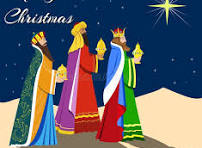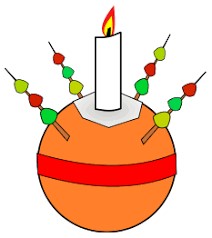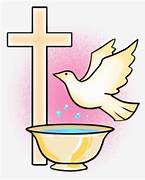150th celebration St Luke’s, Remuera

[Luke6: 12-31 and Acts 2: 43-47]
Do you ever wonder what the earliest followers of Jesus would make of us – the church here in Aotearoa New Zealand in 2025? A country they would never have heard of. Would they be amazed to know that we continue to read about them and their interactions with Jesus? Would those who wrote down those stories and teachings of the time be intrigued to know that we continue to engage with those stories – that we are encouraged and challenged and puzzled and inspired by them? That week by week we gather as the Body of Christ to worship…And that their early witness to Christ has spread right around the world.
And would they be surprised to know how the church has grown and evolved as an institution, be intrigued by how many different denominations and theologies and styles of worship we have? Would they be interested in how we order our life, and how we live in an increasingly secular society?
Well, it is interesting to think about that as we gather today to celebrate 150 years of this church of St Luke’s, Remuera. As we remember that early church that formed around Jesus Christ, we also remember the early settlers who established the church community in this area. Those founding elders – Thomas Mcffarlane, James Stevenson, John Angus. Their vision, their hard work, their commitment to Christ, their witness in the community.And we may wonder too what they would make of how the church has evolved over the years.
I recall being involved in a group training event where we had an ‘ice-breaker’ to get us started and talking to each other. The question was ‘if you were having a dinner party who would you love to invite to be there, and why?’ and it could include people from history. So in our context today - imagine sitting around a dinner table with, say, Peter, with Jesus, alongside some of those who have been in the life of the church here at St Luke’s over the years – say Thomas Mcffarlane, the Rev George Monro, Joan Anderson (the first woman Moderator of the PCANZ), David Clark, Marjory Ramage. What amazing conversations there would be about the church.
The thing is – the church as an institution has changed enormously over time as it has adapted to various times and events inhistory, societal changes and so on. We have accumulated layers of doctrines, experience, traditions, rules and regulations. That is ‘the church’ – but we are ‘the church’ as well – the Body of Christ – with a living faith. And I believe, at that dinner party we were talking about before, it would be the ongoing living faith that we would all be interested in talking about.
Our scriptures today inform us about the early church – what was at their heartbeat, what they were about and how they functioned. And that continues to speak to us today. Reminding us of what is at the core of our faith. The gospel passage talks of Jesus choosing his twelve disciples – the ones who would travel with him, learn from him, assist him in his work. They were also the ones who abandoned him during his time of arrest, trial and crucifixion. And yet they were the ones to whom he reappeared and commissioned to carry on his work. So, ordinary, fallible, very human people who were also committed followers.
We hear of the great needs of the people, and of how they came to Jesus for healing and hope. In him they found compassion. And they must also have found his teachings encouraging and uplifting. ‘Blessed are you who are poor, for yours is the Kingdom of God. Blessed are you who are hungrynow, for you will be filled. Blessed are you who weep now, for you will laugh,and so on…’. Whether they took these teachings literally or figuratively, I imagine they would sense Jesus’ care for them, and that there were better things in store for them in the future. They would hear that the usual order of things was turned upside down. That the weak would be strengthened and sorrow would turn to dancing. What a lift that must have given them. So, a sense of being valued and of having hope.
We also hear of his teachings which continue to challenge us today. ‘Love your enemy, do good to those who hate you’. In those days of the early church, the followers of Jesus would encounter many enemies, those who hated this new movement and there was much persecution and violence towards them. Some died for their faith. We might not face such extreme persecution and violence, but we know sometimes we do have those we might class as enemies. People who have done things that have impacted negatively on us. To hear the injunction to love them, to do good to them might meet with a ‘Yeah right’ response. Yet we also know that harbouring hatred towards others is crippling and that extending goodness to others can be life-changing for them, and for us. There is also the call to be generous in giving and not counting the cost. To move beyond just caring for those who care for us. Challenging stuff! We see through the life of Jesus what it is to live in a counter-cultural way. Something that St Luke’s seeks to do – sharing compassion, justice, love and hope.
And then we have our passage from Acts – one that I really like. Life among the believers in those early days after Pentecost must have been incredibly energising and life-giving. The followers continue to join together for worship, have strong fellowship, share belongings with each other, eat together, praise God and they grew in both number and in depth. So, the importance of gathering for worship,sharing with others, encouraging each other, giving thanks to God. Again, something important to the community here. As Allan Davidson’s book ‘In this place, from this place’ talks of – a place of gathering where you participate in the diverse life of the congregation, and go and life out your daily lives, influenced by that…
Recently I was talking to a young woman in our church in Oamaru about her work. She is very involved in the local community,as well as in local body politics, she is our Deputy Mayor. She also has a lot of involvement in regional and national work for Pacifica people. Her life is very full and busy. We talked of how we keep things in balance and she used a phrase I rather like. ‘We have to always remember our ‘why’. Come back to our ‘why’’. And isn’t that true? Sometimes in life we can get so tied up with things, so overwhelmed by issues or workloads that we forget what is important and why we do what we do. And we can do this in our church life as well. And let’s face it – church life can become quite complex and bewildering at times when we need to face issues to do with compliance,finances, regulations, buildings and so on. But underneath all of that, what is our ‘why’. Why do we continue to seek to be the church in this place? And what are the things that make us the church?
If we were sitting around that dinner table mentioned earlier, what would be our responses to those questions? Perhaps at morning tea today you might like to discuss with others of why you continue to seek to be the church in this place? What is it that is important to you? What is your ‘why’?
Rather than be overwhelmed by the difficult things of the church, and the uncertainties we may have, (and yes we do have to attend to that), we look to the things in the life of our church that are vibrant and life-giving and we seek to grow them, to develop them. We take note of our ‘why’.
Today as we celebrate 150 years of St Luke’s, Remuera, we give thanks for those who had the vision and commitment to begin the church in this place, for all of those down through the generations who have worshipped and witnessed in the community, and for you today who continue to be the church, to be the Body of Christ. And we give thanks for those early followers whose stories of encounter with Jesus, and then with the Risen Christ, continue to resonate with us today and remind us of our why. Let us continue to walk in the ways of our faith. Amen.




